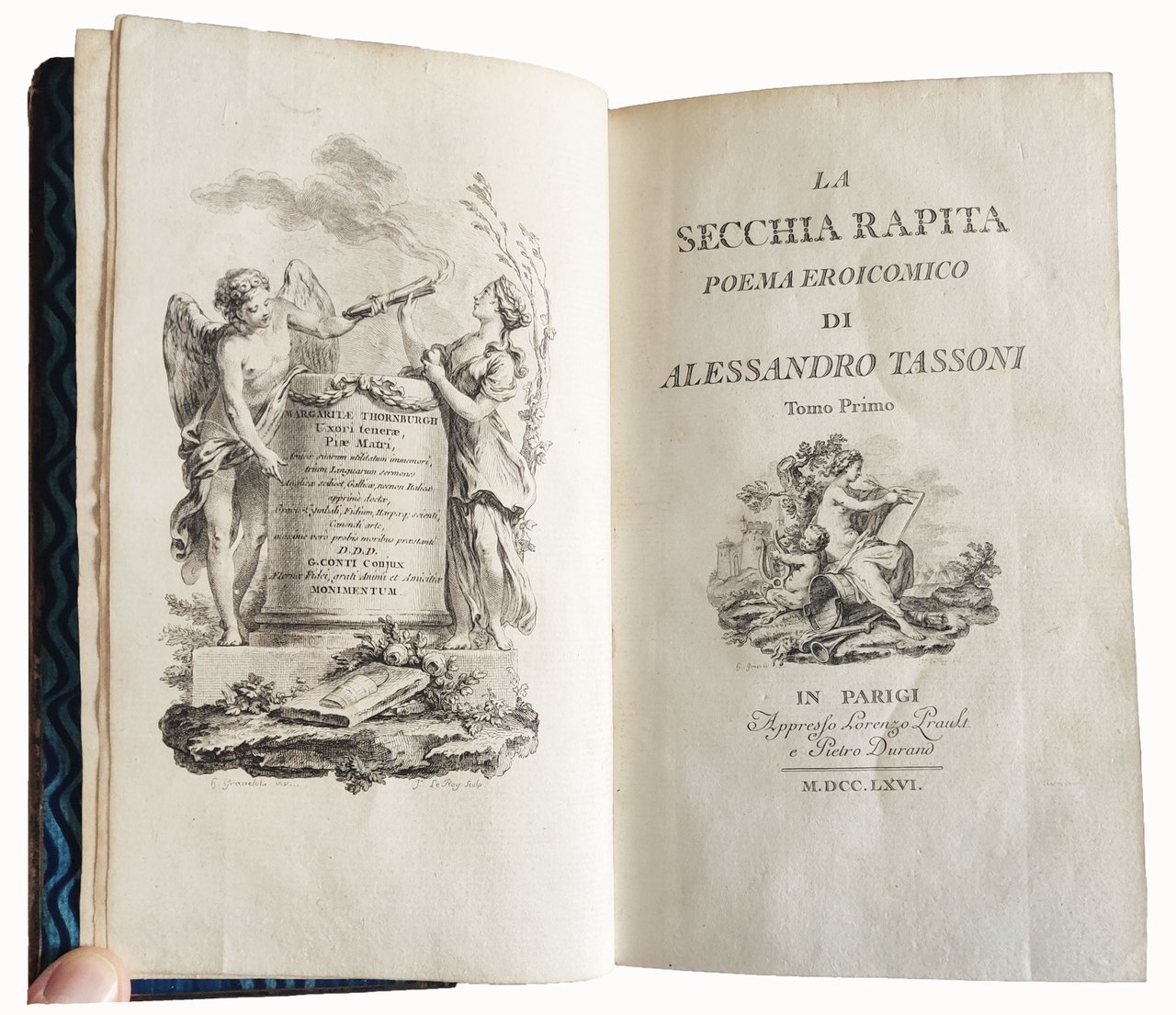
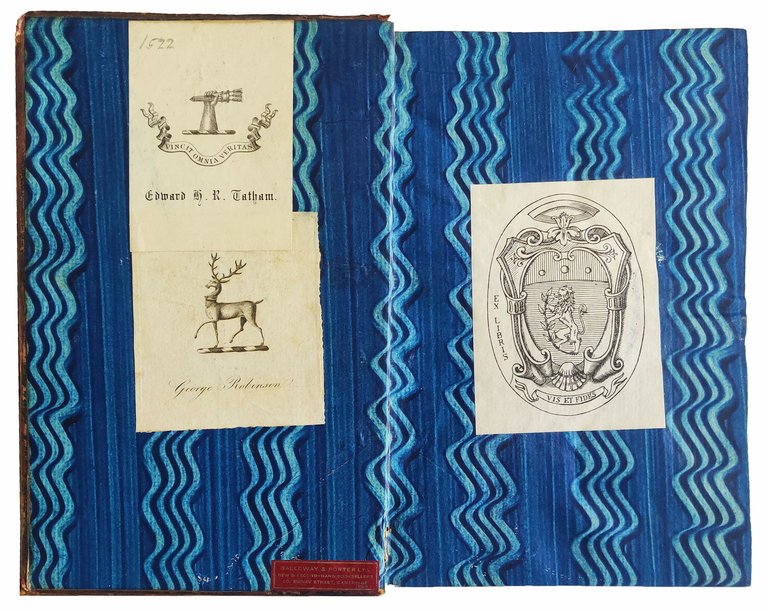
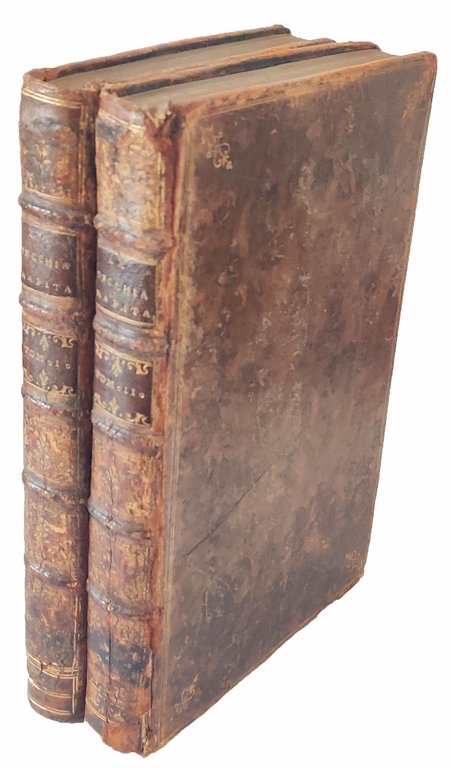
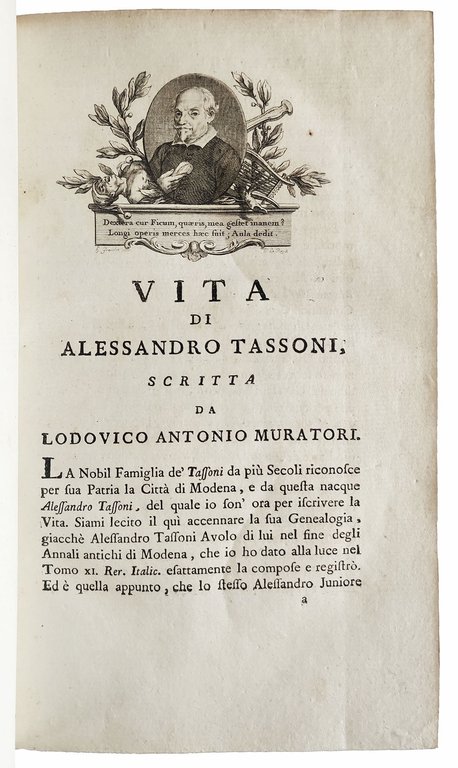
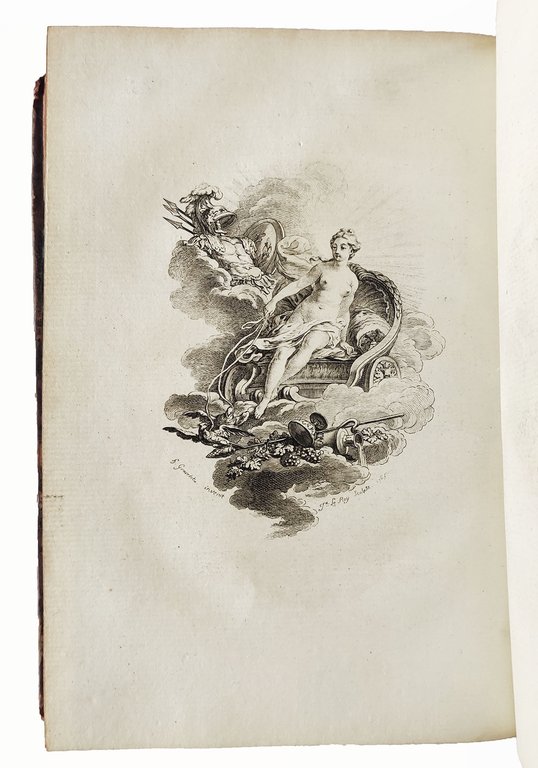
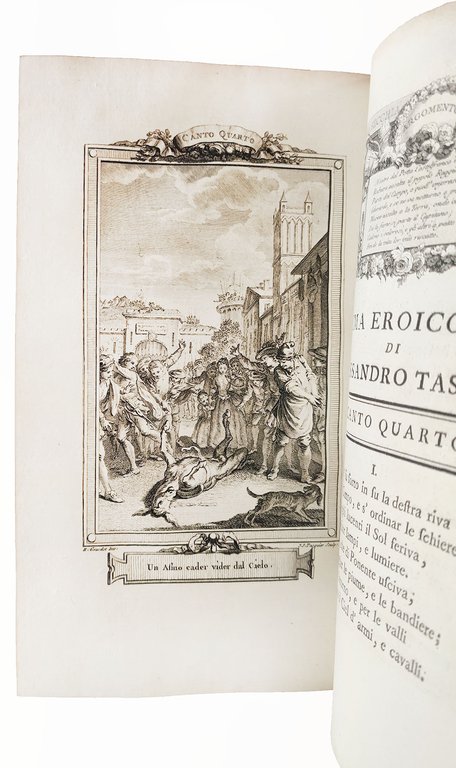
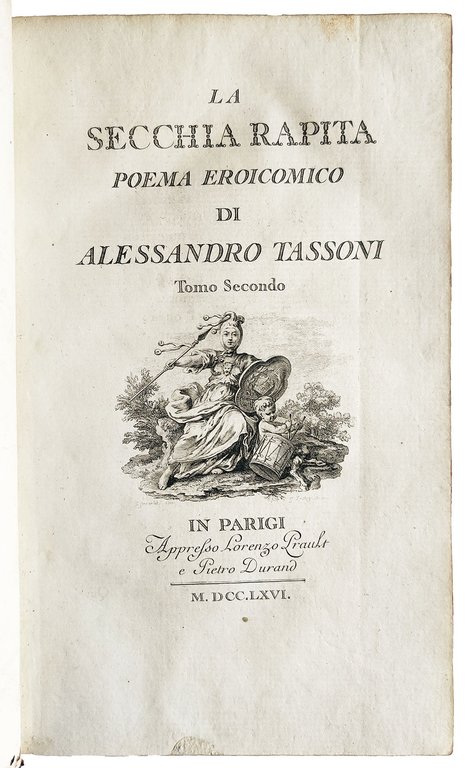
Libros antiguos y modernos
TASSONI, Alessandro (1565-1635)
La secchia rapita. Poema eroicomico
Laurent Prault and Pierre Durand, 1766
950,00 €
Govi Libreria Antiquaria
(Modena, Italia)
Los gastos de envío correctos se calculan una vez añadida la dirección de envío durante la creación del pedido. El vendedor puede elegir uno o varios métodos de envío: standard, express, economy o in store pick-up.
Condiciones de envío de la Librería:
Para los productos con un precio superior a 300 euros, es posible solicitar un plan de pago a plazos al Maremagnum. El pago puede efectuarse con Carta del Docente, Carta della cultura giovani e del merito, Administración Pública.
Los plazos de entrega se estiman en función de los plazos de envío de la librería y del transportista. En caso de retención aduanera, pueden producirse retrasos en la entrega. Los posibles gastos de aduana corren a cargo del destinatario.
Pulsa para saber másFormas de Pago
- PayPal
- Tarjeta de crédito
- Transferencia Bancaria
-
-
Descubre cómo utilizar
tu Carta del Docente -
Descubre cómo utilizar
tu Carta della cultura giovani e del merito
Detalles
Descripción
Beautifully illustrated 18th-century edition of the most important successful poems of the heroicomical genre in Italian literature. La Secchia Rapita was composed between 1614-15 in 10 cantos in octave rhyme and in 1618 it was enriched with 2 additional cantos. It came out in first edition in Paris towards the end of 1621, but with the date 1622, and the title: La Secchia, poema eroicomico d'Androvinci Melisone (Paris, Tussan du Bray). Then it underwent revisions by the Congregation of the Index and was republished in two different issues in Ronciglione (Rome) in 1624, with the title: La Secchia Rapita. Finally, it had a definitive edition, edited by Tassoni, in Venice in 1630.
La Secchia rapita is a large poem that tells the war broken out between Bologna and Modena as a consequence of the theft made by the Modenese, called ‘Gemignani' after the name of their patron Saint, of a moth-eaten bucket belonging to the ‘Petroniani', i.e. the Bolognesi. The entire Homer's Olympus takes part in the war, siding with one town or the other. Ridiculous figures like the bully Count of Culagna and the boastful womanizer Cavalier Titta complete the satirical poem, which mocks the secular and often futile rivalries between the Italian cities. Although the action takes place in the 13th-century, the references to contemporaneity are numerous and expressed with wit and vivacity.
Alessandro Tassoni was born in Modena in 1565 into a noble family but was orphaned at an early age. He studied in Bologna, Ferrara and Pisa, then in 1599 he entered the service of Cardinal Ascanio Colonna. Between 1600 and 1603 Tassoni followed him in Spain. Back to Italy, he mostly lived in Rome as an ambassador of Charles Emmanuel I of Savoy. In 1618 he was called to Turin to carry out the duties of secretary. In 1621 he retired from the post and from the court life, but in 1626 he entered the service of Cardinal Ludovisi. From 1632 to his death, Tassoni lived at the court of Francis I, duke of Modena.
Italian Union Catalogue, LO1E\011947; OCLC, 13600340; Système Universitaire de Documentation, 100324355; Brunet, V, 676; Choix, 18786; P. Puliatti, Bibliografia di Alessandro Tassoni, Florence, 1959, pp. 244-250, no. 136; Cohen-Ricci, 980-81 (“Jolie édition bien illustrée”); Gamba, 2097

